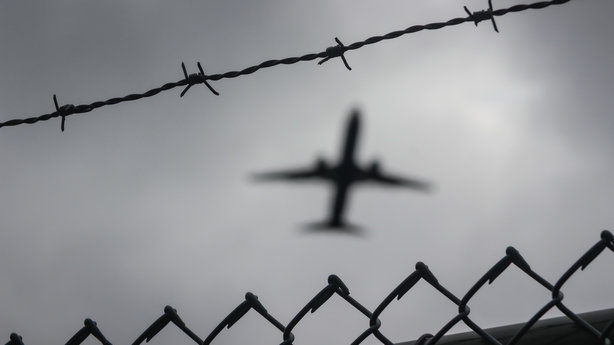Yesterday's air traffic control issues in the UK resulted in numerous flights into and out of Dublin Airport being cancelled.
Disruption to air travel is increasingly common. In June, French air traffic controllers clocked up the 60th day of industrial action by airport workers so far this this year.
What are you rights if you were caught up in the ensuing chaos?
Eoghan Corry, Editor of Air and Travel Magazine, answers some questions to help you get your bearings in this complex arena.
My flight was cancelled. Am I guaranteed compensation?
There are two distinct categories of rights.
Passengers have an absolute right to get to where they're supposed to go. When a flight is cancelled, the airline must offer you an alternative to get to your destination.
But all other rights, such as to accommodation or compensation, will be subject to negotiation.
How can I improve my chances of getting compensation?
One way to deal with this in advance, and guarantee yourself access to fixed rate compensation, is to take out flight disruption insurance. This is not automatically included in the standard annual travel insurance policies that are sold by the four or five main operators in the Irish market, and who have gravitated towards a core set of products. You must choose it as an add-on.
But for an extra €5 or €6 you can avoid all those phone calls and arguments with airlines. Given recent disruptions, including those caused by the French air traffic controllers' industrial action, flight disruption insurance is arguably now a necessity.
What if I did not take out flight disruption insurance this time? Can I get compensation?
For those who did not take out flight disruption insurance, it is far from clear if you are entitled to any compensation. There are usually special circumstances that airlines can plead.
What about getting the cost of accommodation covered?
There is also no absolute right to accommodation. Generally passengers need accommodation when return journeys have been disrupted.
The traditional position has been that if a flight is delayed coming home then the airline would ship you to a hotel. But for many airlines today, the default is to send you back to your travel insurer and let you and them take care of the whole issue.
Low-cost operators tend not to provide accommodation and rather ask people to send in their bills. If accommodation is needed after disruption to a flight from the passenger's home town, the decision of covering the cost or not is generally made on a case-by-case basis.

What other protections or regulations can I can avail of?
Those travelling in the European Union can avail of EU 261, a regulation that is intended to ensure that every passenger is protected and establishes set rates of compensation for categories of disruption.
This is vastly different to the US, where consumers are on their own. American Airlines recently binned most of its protections leaving passengers with virtually no comeback. The risk is all on them.
EU 261 includes protections for passengers whose flights were disrupted in the days after the source of the original problem was solved. That includes anyone who has had a flight disrupted today, after yesterday's technical problem was resolved.
Disruption to flights even after the problem has been fixed is not uncommon, as airlines may well have aircraft in the wrong place following the previous day's chaos.
That said, a passenger's entitlement to compensation is still not totally clear, and may well have to be settled in the courts.
I always found it hard to get information out of airlines - are they getting better or worse?
It's worth noting that in recent years some airlines, notably Ryanair, have become more consumer friendly.
They have very good guidance on their website along with a claim form, and they tend to pay quickly - sometimes within 48 hours.
This may well be the result of the airline having discovered that it is actually cheaper to pay up and solve the issue quickly. Ryanair were the quickest airline to pay up during Covid-19.
What's your take-away advice to passengers?
The key thing to remember is, "Don't fret". It's the airline's problem if a flight is cancelled. They will be in touch with solutions.
Some people go online and pay exorbitant prices to make alternative arrangements; there is no need to do this. The airline knows that you are there. They have an absolute obligation to get you where you want to go.
In recent years, communications strategies have greatly improved, but yesterday it was clear that airlines were very poor at answering questions. This is partly because of the shift towards IT and online communication methods.
While there is a lot to be said for webchats and apps, when dealing with a crisis on the scale of a massive technical outage, arguably what is needed are people at the end of a phone who can answer questions and deliver solutions.

